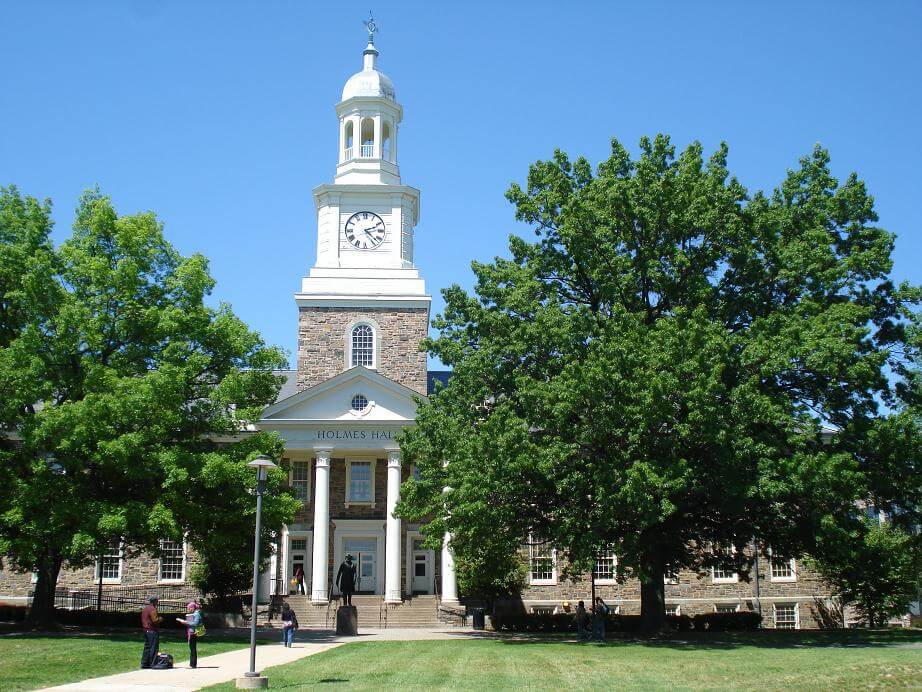KEY INSIGHTS
- Morgan State University is working to become part of an exclusive group of research-intensive universities
- Last week, Morgan State got a $28 million grant from NASA for an earth sciences center
- The school also received $3 million from the state for STEM professors
In just over a month, a list will be released that could help decide which schools get millions of dollars in grants. Chances are, not a single historically Black college or university will be on it.
This list is produced by the Carnegie Classification of Institutions of Higher Education, which classifies schools based on a variety of characteristics like doctoral degrees conferred and research spending. The classifications were last updated in 2018 and will be updated again in mid-December.
There is an unofficial hierarchy system to the classifications that translates into real-world funding. At the top is R1, which Carnegie classifies as schools that have a very high degree of research activity, like Johns Hopkins University, MIT, University of Maryland College Park and Harvard University. Only three percent of the more than 4,300 U.S. colleges and universities that Carnegie classifies are R1, just 131 schools, and many consider it the pinnacle of higher education.
Next come R2 schools, which are still research-intensive but may not spend quite as much on research or confer as many doctoral degrees — this is the current designation of Baltimore-based Morgan State University.
“HBCUs were established to primarily educate freed slaves and many of us have evolved beyond that,” Willie E. May, Vice President for Research and Economic Development at Morgan State, told The Plug. “But none of us have achieved and maintained an R1 stature.”
Since 2018, Morgan State has been an R2 university, one of 11 HBCUs with that classification. But with no HBCU currently being an R1 university, there is an impact on the federal research funding, philanthropic donations and other funding sources they are eligible to get.
“The big proposals that are being funded, the big research scientists that get multimillion dollar awards over a long period to really establish a certain type of research and to be able to experiment and see it through and keep it going, those rarely go to institutions like HBCUs,” Claudia Rankins, Senior Research Associate at PRISSEM Academic Services and a retired Program Director of HBCU-UP at the National Science Foundation, told The Plug.
“You have more confidence as a [grant proposal] reviewer based on what’s in your mind that it’s more likely that the faculty member at the R1 institution has the support needed to carry out the research, so it’s more likely that this research will be successful. That’s just how the thinking goes,” Rankins said.
Morgan State is working to reach R1 status by 2030. Their immediate goal is $50 million in sustaining research grants. They are also looking to increase both the number of faculty involved in research across all of their departments as well as student involvement in research.
One of the ways Morgan State is working to do this is through government and philanthropic funding. In October, Morgan State received $3 million from the Maryland Department of Commerce that will go towards hiring three endowed professors in brain science, cybersecurity engineering and psychometrics and predictive analysis. Morgan State is also putting $3 million of the $40 million donation given last December by MacKenzie Scott, philanthropist and ex-wife of Jeff Bezos, towards the professorships.
Morgan State was also recently granted $28 million over the next three years from NASA to help lead an earth sciences consortium with the University of Maryland Baltimore County, which is also an R2 university.
There is a push from the federal government to try to get HBCUs into R1 status. The IGNITE HBCU Excellence Act, which would provide funding for HBCUs to update their research infrastructure, has 112 co-sponsors from both parties in the House of Representatives although it has not yet passed either chamber.
This month, the Department of Defense will announce a new program to help three minority-serving institutions, which include HBCUs, move from R2 to R1 status, according to May.
However, May said the ultimate goal for Morgan State is not a specific classification, but garnering a certain level of respect.
“Being R1 is a merit badge,” he said. “First and foremost, our quest is to become a well respected research university, and I think we have control over that. Being an R1 is a call that Carnegie makes. Being this well respected university is one that all of our collective peers make.”








